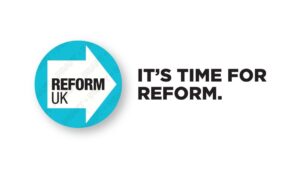Three new parties (Reclaim, Reform UK and Heritage) have formed to challenge the Conservative Government and other mainstream parties on their perceived failings, on areas ranging from lockdown to British culture.
In an effort to provide more options and a wider diversity of opinion, a number of new political parties have formed. They each claim that the current parties in Parliament have failed the people and the country.
The Reclaim Party, which has been set up in the last couple of months, is headed by the former English actor/singer and the culture wars’ new victim/hero, Laurence Fox.

The actor got involved after an appearance on the BBC politics show Question Time earlier this year, in which a university lecturer accused him of being privileged in relation to his opinion on racism in the UK.
The actor has said the reason he has started the party is to “provide a movement for people who are tired of being told that we represent the very thing we have in history stood together against”.
The party’s aims are to reform the BBC and other publicly funded institutions away from political agendas and bias, protect free speech and celebrate Britain’s contribution to the world. Mr Fox has said they are neither a left nor a right-wing party, but will be a broad church.
The party has already raised £5 million from former Tory donors and has been described by a Westminster source as “UKIP for the culture wars”. They plan to stand candidates in the next General Election.
As of a few days ago, Nigel Farage has renamed the Brexit Party to Reform UK, in an attempt to widen the party’s appeal and scope to issues such as opposing lockdowns.

The party claims that the mainstream parties have the same strategy on the Covid-19 issue, saying that it has not worked and is harming both the economy and the people.
https://twitter.com/TiceRichard/status/1323169842699083785
They will therefore promote “focused protection” as well as the controversial alternative Covid-19 strategy known as the Great Barrington Declaration, as approximated in Sweden.
The Chairman of the Brexit Party, Richard Tice, said: “The need for major reform in the UK is clearer now than ever. A new approach is essential so that government works for the people, not for itself.”
The logo and other policies will remain the same, being changing the UK voting system, abolishing the House of Lords and challenging public institutions.
Since its launch, according to a recent poll, the party has risen in popularity. According to The Express, it is 1% behind the Liberal Democrats, who are the third-largest party in the UK.
This is similar to what happened with the Brexit Party last year, when the Conservative Party failed to achieve Brexit under former Prime Minister Theresa May.
A less well known and far more right-leaning, but more developed, party is the Heritage Party. It has been founded by the former UKIP London AM David Kurten.

According to their manifesto, some of their main policies include defending all forms of free speech, promoting “Traditional marriage” and Natural families”, leaving the Trans-Atlantic Trade and Investment Partnership (TTIP), the Paris Climate Agreement and the European Convention on Human Rights (ECHR), and developing the teaching of skills in British schools, with the goal of making the UK self-sufficient in certain areas.
The Party also stands for fiscal responsibility and the free-market economy, and on a pro-life platform.

The Heritage Party plans to stand in the next London Mayoral and Assembly elections, as well as the local elections taking place in May.
Although there is a lot of disaffection with Boris and the Conservative Party, as well as the other mainstream parties, all these parties have problems they will need to overcome.
Firstly, the UK electoral system favours large, established parties that have a number of large financial donors and historical electoral success.
The parties also have narrow appeal/aims; none of them are talking about issues such as housing, transport or taxation policies.
A number of people have suggested that two or three of the parties merge to give them a better chance of challenging the establishment.
Although this would indeed focus the party’s energy and voters would not be so conflicted over who to vote for, it could lead to disputes over party branding and leadership.



